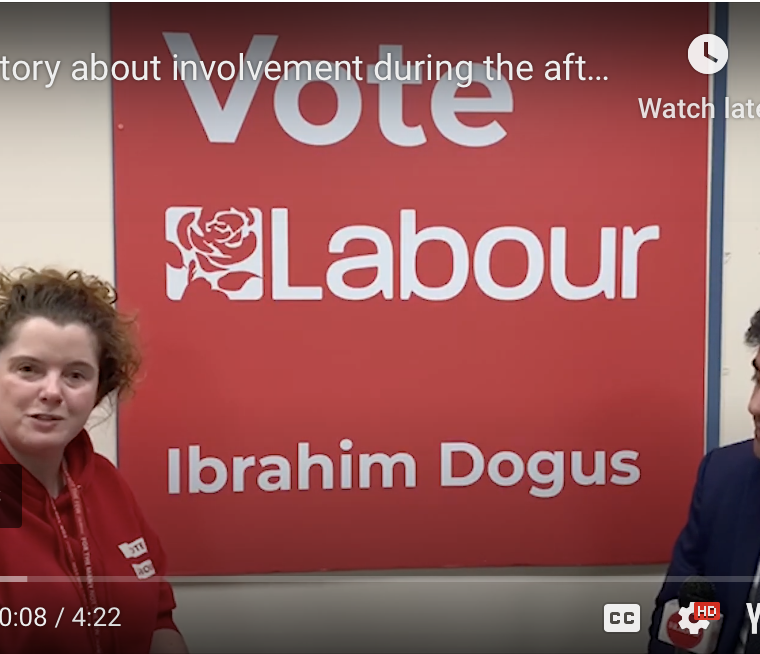The men and women who run small businesses are heroes of the British economy. They will lead us out of this crisis – and Labour will back them every step of the way.
Now, as the nation appears to be sliding into a major recession, it is right to speak out on what the Tory government has got wrong in its support package – as well as recognising where ministers have done the right thing.
As we approach the two month anniversary of entering lockdown then let’s overhaul the small business rescue package and help these heroes get back on their feet.
This means rewriting the rules on business taxes – lifting the layer of confusion that has covered the government’s emergency loan scheme – and asking the top 1 per cent to pay a little extra as a one-off response to an unprecedented national disaster.
As a restaurateur who has built and managed several small businesses I would be the first to admit that the Treasury has stumped up significant cash to help SMEs deal with the impact of coronavirus.
What I am concerned about, however, is a set of announcements that has run into trouble from the moment it was announced by new chancellor Rishi Sunak.
The furlough scheme is the right one but instead of offering incremental extensions to its lifetime – the latest being to move back its closure by a single month to June 30 – the government should accept the inevitable and guarantee the funding until January next year. It is beyond doubt that the economy will feel the benefit from keeping people in work and protecting their income.
And let’s ensure that only those registered to pay their taxes in the UK are entitled to tap into the scheme. And it will not be a bad idea to consider refunding last three years of corporation tax to small businesses as reward of doing the right thing.
The option for SMEs to defer tax payments such as VAT is the right one but represents a piecemeal solution that doesn’t take into account the differing revenue streams, cost bases and levels of profitability (if any) of small businesses in various sectors.
Ministers should also explore how to allow people to move industry quickly in order to fill shortages of labour. Right now that means, for example, supporting people who have worked in hospitality and whose roles seem most at risk from the effect of an extended lockdown – to obtain immediate training online and take up interim roles wherever there is demand, for example in parts of the public sector.
And, given that there is a need for simple schemes that provide help across sectors, then government should tackle one of the biggest costs for SMEs: commercial rents. In Canada the Trudeau administration has set up a straightforward initiative by which small firms pay only 25 per cent of their rent. The landlord contributes the same proportion and can also access a 50 per cent loan – which can be forgiven – from the state.
Alternatively ministers here could consider how to offer small business tenants a rent holiday for nine to 12 months with state backing for an accompanying holiday on the liabilities for the landlord.
Labour has already won the argument on one key area – the increase from 80 per cent to 100 per cent in the emergency loan scheme which is designed to support cash-starved businesses, which are often the smaller firms. This u-turn by Rishi Sunak followed weeks of pressure from Ed Miliband, the new shadow business secretary, to change the Coronavirus Business Interruption Loan Scheme (CBILS), which lends up to £5m to firms with turnover from £25,000 to £45 million.
What gives me hope in the future is that Labour’s new leadership team is comprised of people who have run large organisations and major Whitehall departments as well as playing significant roles in policymaking and trade unions.
Sir Keir Starmer, shadow chancellor Anneliese Dodds and Ed Miliband have taken a sensible approaching in recognising what the government has got right and challenging them on where their measures have fallen short or require a rewrite.
When I and SME4Labour co-chair Sonny Leong spoke to Anneliese Dodds, Ed Miliband and shadow business minister Lucy Powell via Zoom this week I could see immediately they understood what more Britain needs to do to bounce back.
This is an example of an opposition playing a positive and practical role at a time of national crisis.
Now I want the government to make a further change to CBILS: applying the 100per cent guarantee all loans issued under the scheme rather than just backing the micro-SMEs. Let’s see support given to all our brilliant SMEs.
These are big measures that would have an impact immediately. And the government should not stop there.
I would like to see a wealth tax levied on Britain’s richest people. Let’s ask the top 1 per cent to pay a one-off levy on assets – including property – to help the state cover around a quarter of the cost of the pandemic.
The impact of Coronavirus has been felt at every level of society but we know the poorest normally pay the price for a downturn.
If, as the government, says, we are all in this together then we should all be prepared to contribute towards the bill for coronavirus. We should not forget that every billionaire has gained that status only by tapping into the hard work and skills of lesser paid workers on basic salaries.
Labour’s vision is of firms large and small, communities, charities and the state coming together to support the vulnerable today and building a new economy for tomorrow. I know the Labour leadership will back our small business heroes.





